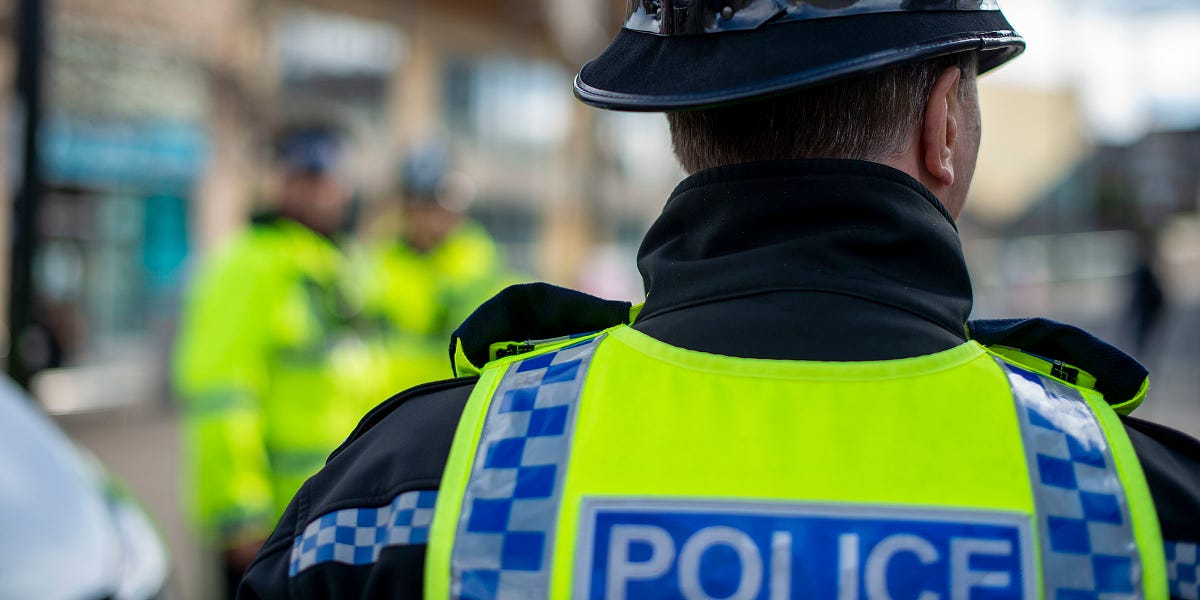Something to note:
"Whatever the instigators of the riots want their compatriots to believe, Britain is more successful at integrating immigrants than any other country in Europe. Every ethnic group has consistently become less segregated since the census started keeping track in 1991."
How to respond to the riots on Britain’s streets
The violence demands robust policing, but it also requires cool heads
IT IS HARD to think of a worse way to remember the three little girls murdered in Southport on July 29th. Ever since that tragedy, indefensible
anti-immigration protests have flared across England. Mosques and police officers have been attacked. In Rotherham criminals tried to set fire to a hotel they thought was housing asylum-seekers. Town centres up and down the country have been marred by street battles.
Disturbances of this sort occasionally disfigure British cities. Many of the troublemakers over the past few days have been youngsters drawn by the thrill of mindless violence rather than by a sinister political ideology. Anti-immigrant protesters have sometimes been heavily outnumbered by anti-fascist counter-protesters. Britain is an increasingly liberal country; it has not suddenly become a racist one.
Yet even if this bout of violence fades away, as the London riots did in 2011, the disorder has illuminated three concerns. The first centres on the state of Britain’s criminal-justice system.
Mistrust of the police has grown in recent years: less than half of people now think their local force is doing a good or excellent job, down from 63% ten years ago. Britain’s
judicial machinery has been badly gummed up since the covid-19 pandemic. Prisons are overflowing and unable to cope with an influx of new inmates. A system that does not command the confidence of the public is more liable to see bad behaviour.
Another concern is the prevalence and power of misinformation. The
spark for the first riot, which took place in Southport the day after the murders, was a lie on social media, claiming that the girls’ attacker had been a Muslim who had arrived in Britain illegally on a small boat and who was on a terror watch-list. In fact, the 17-year-old charged with the crime was born to Rwandan parents in Britain.
Many of the wild claims that fire up anti-immigrant protesters are simply untrue. One belief is that senior officers practise “two-tier policing” in which white people are treated less fairly than ethnic minorities. But that is nonsense. In the year ending in March 2023, the police carried out 24.5 stop-and-searches for every 1,000 black people and 5.9 for every 1,000 white people. The story that participants in a separate riot in Leeds in July escaped justice because they were Roma is also wrong; so far there have been at least 27 arrests. Perhaps some people are genuinely gulled by these falsehoods, perhaps they spread them knowing well that they are false. Either way, the truth often seems to count for less than lies that confirm people’s prejudices.
The last concern is that immigration has become a running sore in British politics. The problem is a poisonous mix of real problems and divisive opportunism. The asylum system really is a mess. Politicians are indeed without an easy way to deal with illegal immigration. At the same time, however, gimmicky promises to “stop the boats” are bound to end in disappointment—and thereby feed the belief that immigration is out of control. Dogwhistle language from the likes of Nigel Farage, the leader of Reform UK, about “societal decline” provides cover for hostility to migrants. It would therefore be unwise to treat the riots as if they were a one-off event that can be forgotten as soon as they die down.
The Labour government’s response to the riots needs to be alive to all of these concerns. The prime minister, Sir Keir Starmer, is right to condemn the use and threat of violence, but he must also face up to the erosion of the state’s capacity to police and punish wrongdoing. That means investing more in the criminal-justice system, which is currently due to see real-terms cuts.
The threat of misinformation requires a faster and more honest response from police and tech platforms. The police have not yet adjusted to the speed with which posts on social media can turn into trouble on the streets. It took them several hours to rebut the rumours about the identity of the Southport attacker. The social-media platforms themselves continue to fall badly short on their promises to stop falsehoods circulating during emergencies.
And the likelihood that immigration will remain a contentious topic requires the prime minister to strike a difficult rhetorical balance. Rather than demonising everyone who takes part in protests, as if they were part of a single movement, he should aim to split far-right agitators and violent thugs from people who are open to politics as usual.
Part of that strategy is to be unequivocal in his condemnation of violence. The handful of people who threaten lives by hurling bricks and lighting fires should face robust action to deter others. Another part of the strategy is to have no truck with lies about two-tier policing. But part also involves hard work long after the riots are over and the debris has been swept away, to talk to local communities about immigration.
Whatever the instigators of the riots want their compatriots to believe, Britain is more successful at integrating immigrants than any other country in Europe. Every ethnic group has consistently become less segregated since the census started keeping track in 1991. Immigrants with foreign qualifications have almost exactly the same employment rate as those with domestic qualifications. The story the far-right tells is not the real one—and the government needs to make that clear. ■
The violence demands robust policing, but it also requires cool heads

www.economist.com





